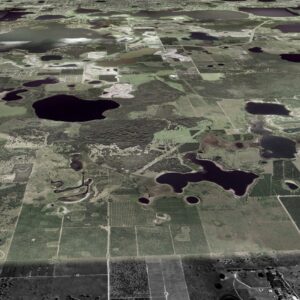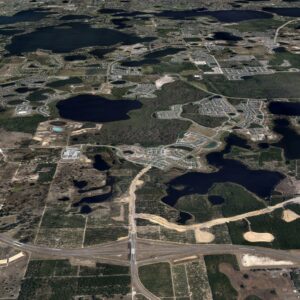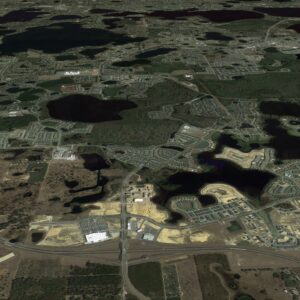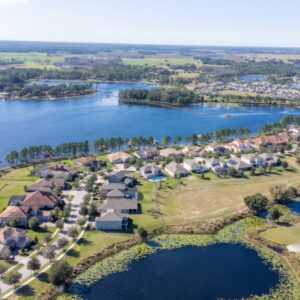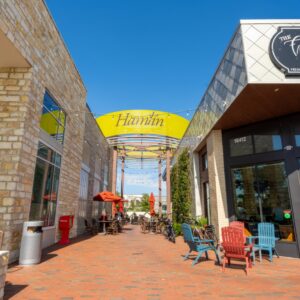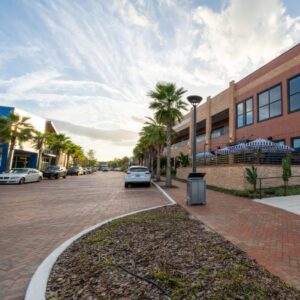Do You Know the History of Your Chosen Hometown?
3 February, 2024
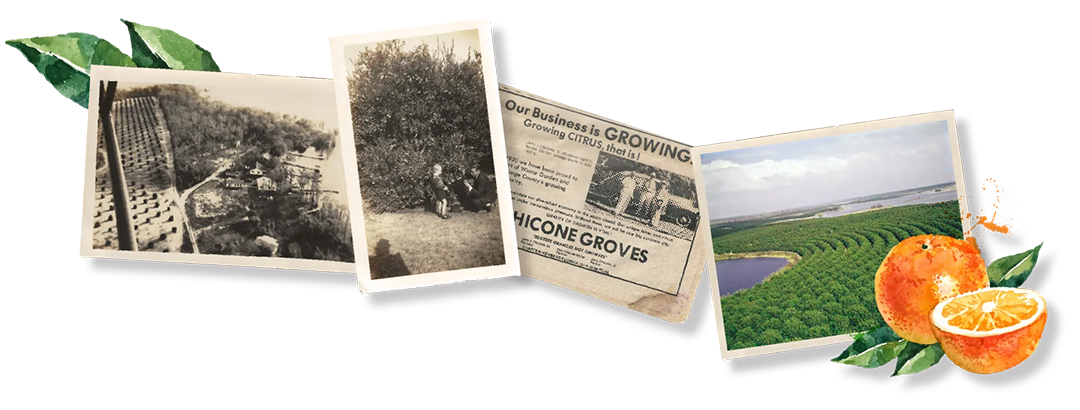
How did Horizon West come to be?
Let’s take a walk through time together so you can learn the fascinating history of your chosen hometown!
Rewind thirty years and meet the citrus growers who owned the land on which Horizon West now sits were dealing with a shocking freeze that devastated the local industry. It was the third of a succession of major freezes throughout the 1980s, leaving growers with no time to recover. Packinghouses and juice processors closed their doors permanently as the industry was forced to move further south. It was the end of an era, with many families having been in the industry for generations.
Jerry Chicone, Jr. had been a citrus grower in west Orange County all his life; his family owned grove land for 60 years by that time. He led the effort to replant after the 1985 freeze, and the 1989-90 crop was going to be the industry’s savior. But following shocking, below-freezing temperatures on Christmas weekend in 1989, he told the Orlando Sentinel, “I don’t need to prove my love for the citrus industry to anyone. I’ve invested too much money and effort into replanting after the last freeze… I’m not rushing out to develop my land, but after three freezes in seven years I’m going to take off my white hat and put on my developer’s hat.” After the 1989 freeze, he started talking about forming an association of west Orange County growers to unite them in a push for development so their land could still be fruitful for their families, but in a new way.
Change had been coming for decades already, and with it came the increasing pressure to build and develop the rural area. With Walt Disney World® Resort having opened in 1971, as well as the subsequent arrival of SeaWorld, Orlando International Airport, Orange County Convention Center and Universal Studios – Orange County was growing rapidly. Chicone could see Space Mountain and Disney’s Contemporary Resort from his groves, and he could envision the homes that would be needed to support the tourism industry. Minimizing sprawl, however, was a priority on the minds of county planners and in 1991 they adopted a growth plan designating the southwest corner of the county for agricultural use only. This meant the citrus growers found themselves without oranges to sell, and now they couldn’t profitably sell their land either.
These concerns led to a meeting at the Ranch House Restaurant in November of 1992, where real estate broker Jim Karr spoke to second- and fourth-generation citrus growers Lester Austin III and Billy Burch, and plans emerged to form a coalition of landowners. They understood that in order for the county to hear their case, they would need to be able to propose a long-term and comprehensive solution. Karr knew that the land was desirable due to its high location and dry soil, making it easier to develop than lower lying wetlands. Development of the area would bring funding for the proposed 429 beltway. Jim Sellen, the president of a successful land planning firm in Orange County, entered the story and a nonprofit organization, Horizon West Inc., was incorporated. Sellen was brought into the group to develop a concept that would encompass tens of thousands of acres of land. Sellen, who had been Orange County’s planning director in the 1970s, embraced the long-awaited opportunity to create a “big picture” vision. Workshops were held where the public was invited to help plan what the area would look like in 50 years. Would it be a series of disconnected subdivisions or maybe even a new urban center? Would it be possible to preserve some natural land? It took two years, but in 1995 a plan was presented to the county for approval.
Sellen had drawn inspiration from a movement called New Urbanism. Horizon West would be comprised of “villages,” each with several neighborhoods with a mix of housing types, their own schools and parks. The villages would be built around a town center, incorporating green spaces and wide trails. It would be the largest master-planned development in Central Florida’s history, but the idea was to make it close-knit and walkable, with the feel of many small, interconnected micro-communities. “What we have here, if it works, is a model for the rest of the state of Florida,” said County Planning Manager, David Heath. The county was impressed and agreed to amend the Comprehensive Policy Plan to include Horizon West’s Village Land Use Classification. Shortly thereafter, the state approved the change as well, and in January of 1997 the first village – Lakeside – was given the green light.
Now, just over 25 years have passed since the citrus growers came together to turn their hardships into the home we call Horizon West. They faced the challenge by creating a plan that would take what had been a patchwork quilt of burnt-out orange groves and turn it into a community that Orange County can be proud of. Horizon West is still growing into that plan, and just like those who lived here before us, we continue to support our neighbors and look to the future.
 As Horizon West stands today—a walkable community with a small-town feel—it’s crucial to acknowledge the pivotal figures who played a role in its development. Among them is Randy June, a land developer whose impact on the landscape cannot be overstated. Having developed over 15,000 lots, Randy’s roots run deep in West Orange, the very soil of Horizon West. Born and raised here, his intimate knowledge of the land and commitment to community-enhancing projects have helped shape the area into the flourishing region it is today.
As Horizon West stands today—a walkable community with a small-town feel—it’s crucial to acknowledge the pivotal figures who played a role in its development. Among them is Randy June, a land developer whose impact on the landscape cannot be overstated. Having developed over 15,000 lots, Randy’s roots run deep in West Orange, the very soil of Horizon West. Born and raised here, his intimate knowledge of the land and commitment to community-enhancing projects have helped shape the area into the flourishing region it is today.
No less significant to this story is Don Phillips, a seasoned citrus farmer whose familial roots extend like the deep groves of the Story family citrus farming heritage, dating back to the 1930s. The Phillips owned hundreds of acres within what is now Horizon West, serving as a testament to the area’s rich agricultural past. Together with his wife Diane, Don has witnessed the transformation of their land, echoing the evolution of the community at large.
Kurt Ardaman lends another layer to this story as a real estate attorney with a generational connection to West Orange County. The Ardaman family’s longstanding history in the area provides a perspective that has proven invaluable in navigating the legal intricacies of land development, ensuring the growth of Horizon West aligns with its founders’ vision while respecting its past.
Jim Karr’s contribution is also foundational. Not only a real estate broker with extensive expertise in the land development business but also a native born and raised in West Orange County, Jim has been a bridging force. His understanding of the land’s potential and the community’s needs has been crucial in transforming Horizon West from a series of burnt-out orange groves into the master-planned development we see today.
Each of these individuals, with their deep connections to West Orange County and Horizon West, represents the confluence of tradition, perseverance, and vision. As we look upon the neighborhood streets, the bustling town center, and the vibrant parks, it’s important to recognize that these elements are the fruits of labor—not only of those who plant trees but also of those who plan and build for generations to come.
Their stories interweave the fabric of Horizon West’s history with personal narratives that exemplify the transition from a citrus-based economy to one of innovative community planning and development.
Horizon West Special Planning Area | Terrain.org Unsprawl Case Study (2003)
Other News

SeaWorld Orlando’s Seven Seas Food Festival 2026: Concert Lineup, Dates & Details
29 January, 2026

Celebrating Black History Month in Horizon West
29 January, 2026
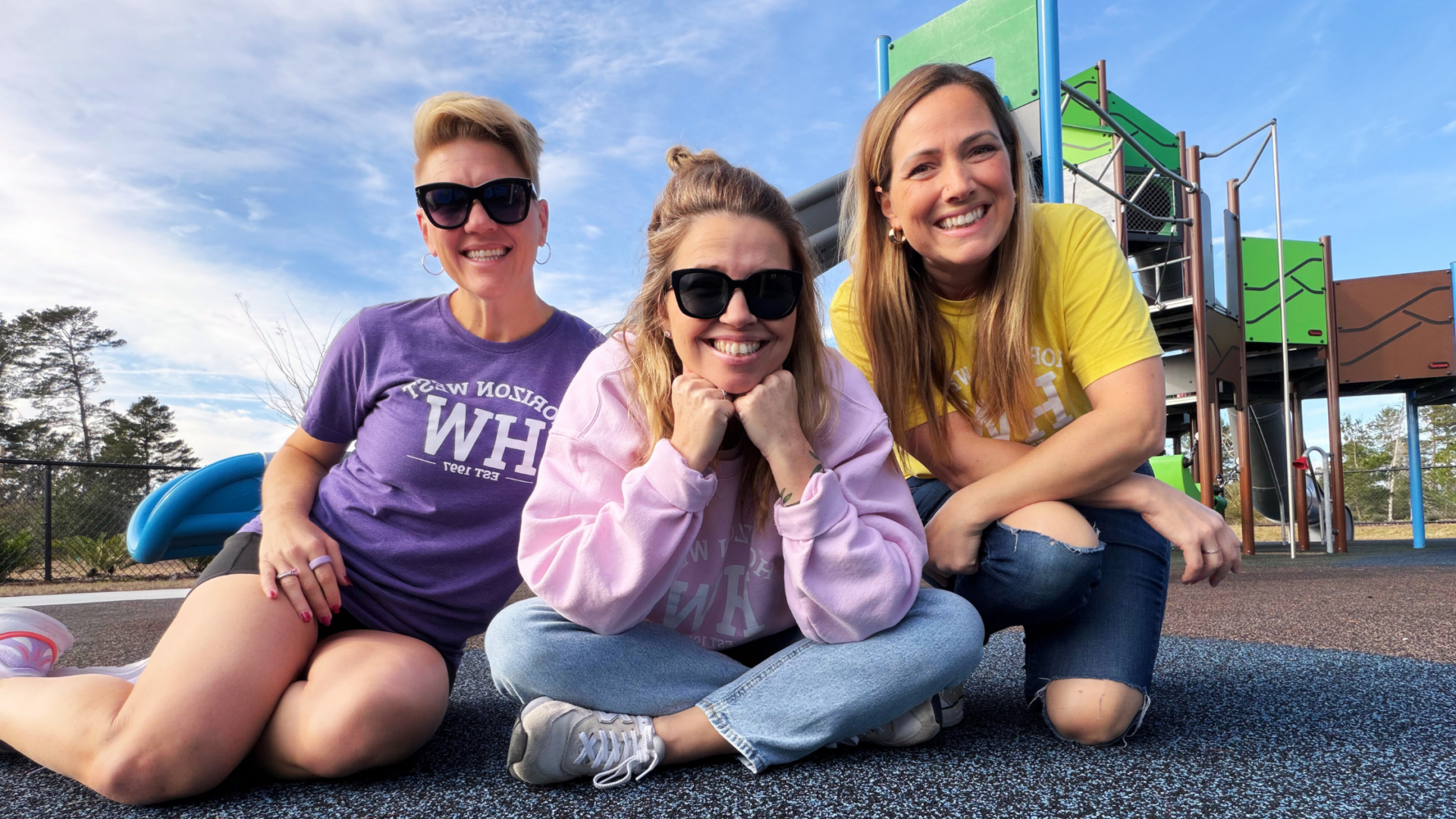
Horizon West Regional Park Is Officially Open — Here’s Why Residents Are Already Loving It
22 January, 2026
